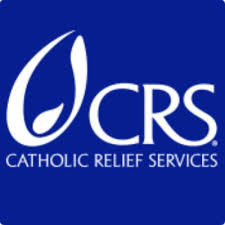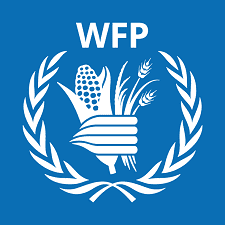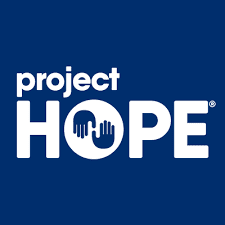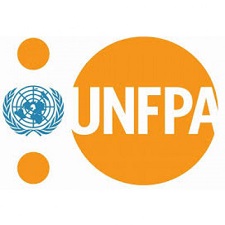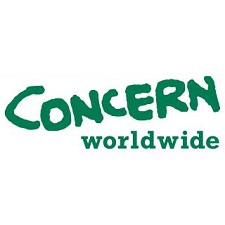🇸🇱 Job Vacancy @ UNICEF (United Nations Children’s Fund) – WASH Officer (Hygiene Promotion)

General
Description of assignment title: WASH Officer (Hygiene Promotion)
Assignment country: Sierra Leone
Expected start date: 12/30/2024
Sustainable Development Goal: 6. Clean water and sanitation
Volunteer category: National UN Youth Volunteer
Host entity: UNICEF
Type: Onsite
Duration: 12 months
Number of assignments: 1
Duty stations: Freetown
Details
Mission and objectives
The fundamental mission of UNICEF is to promote the rights of every child, everywhere, in everything the organization does — in programmes, in advocacy and in operations. The equity strategy, emphasizing the most disadvantaged and excluded children and families, translates this commitment to children's rights into action. For UNICEF, equity means that all children have an opportunity to survive, develop and reach their full potential, without discrimination, bias or favouritism. To the degree that any child has an unequal chance in life — in its social, political, economic, civic and cultural dimensions — her or his rights are violated. There is growing evidence that investing in the health, education, and protection of a society's most disadvantaged citizens — addressing inequity — not only will give all children the opportunity to fulfil their potential but also will lead to sustained growth and stability of countries. This is why the focus on equity is so vital. It accelerates progress towards realizing the human rights of all children, which is the universal mandate of UNICEF, as outlined by the Convention on the Rights of the Child, while also supporting the equitable development of nations
Context
In Sierra Leone, 31.4 percent of the population have access to basic sanitation while 17.8 percent have access to improved sanitation facilities that are functional, private, and not shared. Meanwhile, open defecation remains a significant challenge, with 25.1 percent of the population resort to this unsafe behavior due to the absence of toilet facilities. This issue is even more pronounced in rural areas, where 35.4 percent of the population practices open defecation.
The Ebola outbreak in 2014 prompted government and community efforts to promote handwashing. This momentum intensified with COVID-19 pandemic, which spurred more intensive handwashing promotion campaigns across the five provinces of the country, highlighting the significance of hand hygiene as an essential, low-cost public health measure for safe and effective health care. However, despite these experience over the past decade, sustaining good handwashing practices beyond health emergencies has remained challenging. An insufficient hygiene culture coupled with a lack of consistent access to facilities and products such as water and soap, continue to hinder the adoption of regular hand washing as a daily preventive behavior..
UNICEF has supported the government of Sierra Leone to implement Community-Led Total Sanitation that has resulted in twenty Chiefdoms achieving open defecation-free status across six districts. Through the adoption of a Chiefdom-wide approach to sanitation promotion, UNICEF has supported training of government and CSO personnel, helping to build a critical mass of resources necessary for scaling-up sanitation efforts in Sierra Leone. UNICEF has also supported the Ministry of Water Resources and Sanitation in developing a National Hygiene Promotion Manual to guide the implementation of interventions in the community, schools and health facilities. To address the variety of topographies and related challenges, UNICEF has also supported the development of a toilet option catalogue, offering various design suited toilets options. However, there is a need to enhance social and behavior change efforts to encourage and facilitate widespread adoption of safe hygiene and sanitation practices across the country.
Task description
Under the direct supervision of the WASH Specialist (P3), and technical supervision from SBC Specialist, the UN Volunteer will undertake the following tasks: 1. Assist in generating and utilizing research, data, and evidence to inform the design, measurement, and monitoring of SBC programs and outcomes and to build the evidence base for SBC.
- Support Data Collection and Research Utilization for WASH Programs: Assist in gathering, analyzing, and applying research and data specifically related to WASH behaviors. Collaborate with WASH specialists, government officers, and partners to conduct situation analyses that identify the social and behavioral drivers impacting hygiene practices, including handwashing and sanitation facility usage.
- Participate in Monitoring and Reporting of WASH-Related SBC Initiatives: Contribute to the tracking, monitoring, and reporting of WASH-related SBC program outcomes. Prepare concise summaries of data and trends on hygiene and sanitation behaviors to inform evidence-based strategies that promote safe hygiene practices and increase access to improved sanitation facilities.
- Facilitate Community Feedback Mechanisms to Enhance WASH Engagement Help establish community feedback channels to gather insights on hygiene behaviors and sanitation needs. Use com-munity feedback to inform and adapt interventions aimed at promoting sustainable hygiene practices and fostering resilience in WASH-related behaviors, including during emergencies and public health crises.
2. Design, plan and implement SBC activities that are backed by social and behavioral evidence and strong engagement and participation mechanisms in both development and humanitarian contexts.
- Design, Plan, and Implement Evidence-Based WASH SBC Activities: Collaborate with sectoral and cross-sectoral specialists, relevant government officers, and partners to provide technical and ad-ministrative support in the development and implementation of SBC strategies for WASH and hygiene promotion, with focus on implementation and alignment with the National Sanitation and Hygiene Promotion strategy including Menstrual Hygiene Management
- Select and Coordinate WASH SBC Activities for Effective Community Engagement: Work with UNICEF colleagues, government, and implementing partners to identify appropriate SBC activities and platforms for hygiene promotion, coordinating with stakeholders to align plans and ensure a cohesive effort in promoting WASH-related behaviors.
- Integrate Innovative Approaches in WASH SBC Programming: Propose actionable recommendations based on current data and trends in WASH and hygiene behaviors. Advocate for and integrate innovative technologies and approaches, such as digital tools or community-based monitoring, to enhance the impact and reach of WASH SBC initiatives among both internal and external stakeholders.
3. Support operationalization of WASH SBC initiatives, mobilizing resources, coordinating across stakeholders, sectors and teams, and building alliances and partnerships.
- Advocate and Mobilize Resources for WASH SBC Initiatives: Support advocacy efforts for SBC in WASH (and climate-resilient strategies) by coordinating with stakeholders to build partnerships and mobilize resources. Assist in proposal development, budget tracking, and identifying resources for WASH SBC activities.
- Facilitate Coordination with Partners and Stakeholders: Collaborate with national and local partners to align SBC approaches for hygiene promotion, WASH, DRR and climate adaptation. Represent UNICEF's interests in local meetings as needed and support joint WASH SBC activities to strengthen community resilience.
- Support Planning and Integration of WASH SBC Strategies: Contribute to the integration of SBC into WASH sectoral plans, sharing best practices and innovative approaches. Support in planning and tracking resources to ensure efficient and compliant use of funds.
4. Promote continuous learning, strengthening, and scaling up in SBC through capacity building for UNICEF staff, partners and implementers.
- Support Capacity Building in WASH SBC: Assist in compiling, adapting and organizing SBC training materials on approaches to enhance SBC skills related to WASH and climate resilience.
- Promote Best Practices and Knowledge Sharing: Facilitate the exchange of experiences and con-tribute to the development of best practices in SBC for WASH. Support internal and external stakeholders in adopting new SBC methods and tools to strengthen community engagement. egA9Z2H C0zkMl
- Enhance Capacity for Emergency Preparedness and Response: Assist in the development of tools and activities for SBC capacity building in emergency preparedness and response, with a focus on disaster preparedness, response, and recovery in WASH and climate-related programs.
Furthermore, UN Volunteers are required to:
- Strengthen their knowledge and understanding of the concept of volunteerism by reading relevant UNV and external publications and taking active part in UNV activities (for instance in events that mark International Volunteer Day).
- Be acquainted with and build on traditional and/or local forms of volunteerism in the host country.
- Reflect on the type and quality of voluntary action that they are undertaking, including participation in ongoing reflection activities.
- Contribute articles/write-ups on field experiences and submit them for UNV publications/websites, newsletters, press releases, etc.
- Assist with the UNV Buddy Programme for newly arrived UN Volunteers.
- Promote or advise local groups in the use of online volunteering or encourage relevant local individuals and organizations to use the UNV Online Volunteering service whenever technically possible.
Eligibility criteria
Age: 18 - 80
Required experience
0 - 3 years
Nationality
Candidate must be a national or legal resident of the country of assignment.
Assignment requirements
Relevant experience
2 years
Languages
English, Level: Fluent, Required
Required education level
Bachelor degree or equivalent in Public health, Social Sciences, Behavior change, Communication, Health and Hygiene Education or Communication for Development
Competencies and values
☒ Accountability
☒ Adaptability and Flexibility
☒ Building Trust
☒ Client Orientation
☒ Commitment and Motivation
Commitment to Continuous Learning
☒ Communication
☒ Creativity
☒ Ethics and Values
☒ Integrity
☒ Judgement and Decision-making
☒ Knowledge Sharing
☒ Planning and Organizing
☒ Professionalism
☒ Respect for Diversity
☒ Self-Management
☒ Technological Awareness
☒ Working in Team
Skills and experience
professional work in WASH related programme with key partners including national and sub-national government agencies, non-government organizations (NGOs) and the private sector.
- A minimum of one-year professional experience in areas of health and WASH promotion, communication for development/social and behavior change, public advocacy, social development programme planning, community engagement, or any other relevant areas.
- Experience working in the UN or other international development organization is an asset.
- Excellent oral and written communication skills.
- Excellent interpersonal skills; culturally and socially sensitive; ability to work inclusively and collaboratively with a range of partners, including grassroots community members, religious and youth organizations, and authorities at different levels; familiarity with tools and approaches of communications for development.
- Ability to work and adapt professionally and effectively in a challenging environment; ability to work effectively in a multicultural team of international and national personnel.
- Solid overall computer literacy, including proficiency in various Microsoft Office applications (Ex-cel, Word, among others), email, and internet; familiarity with database management; and office technology equipment.
- Self-motivated, ability to work with minimum supervision; ability to work with tight deadlines.
Area(s) of expertise
Community development, Social work
Driving license
Other information
Living conditions and remarks
The UN Volunteer will be based at UNICEF's Sierra Leone Country Office in Freetown with periodic travels to the districts. Freetown is classified by the United Nations as Family duty station and living conditions are good. Currently, UNICEF's Sierra Leone Country Office has two Regional Offices: Makeni and Kenema covering 16 districts all situated in UN Security Phase Two conditions. Living conditions at both regional field offices are also good. UNICEF does not have any guest houses in those locations and visiting staff staying overnight are expected to stay at hotels.
Inclusivity statement
United Nations Volunteers is an equal opportunity programme that welcomes applications from qualified professionals. We are committed to achieving diversity in terms of gender, care protected characteristics. As part of their adherence to the values of UNV, all UN Volunteers commit themselves to combat any form of discrimination, and to promoting respect for human rights and individual dignity, without distinction of a person's race, sex, gender identity, religion, nationality, ethnic origin, sexual orientation, disability, pregnancy, age, language, social origin or other status.
Reasonable accommodation
UNICEF offers reasonable accommodation for UN Volunteers with disabilities. This may include, for example, accessible software, travel assistance for missions or personal attendants. We encourage you to disclose your disability during your application in case you need reasonable accommodation during the recruitment process and afterwards in your assignment.
Note on Covid-19 vaccination requirements
In addition to duty station-specific vaccine requirements, appointments are subject to confirmation of fully-vaccinated status against SARS-CoV-2 (Covid-19) with a World Health Organization (WHO)-endorsed vaccine, which must be met prior to taking up the appointment. It does not apply to UN Volunteers who will work remotely and are not expected to work on or visit UNICEF premises, programme delivery locations or directly interact with communities UNICEF works with, nor to travel to perform functions for UNICEF for the duration of their contracts.
Scam warning
The United Nations does not charge any application, processing, training, interviewing, testing or other fee in connection with the application or recruitment process. Should you receive a solicitation for the payment of a fee, please disregard it. Furthermore, please note that emblems, logos, names and addresses are easily copied and reproduced. Therefore, you are advised to apply particular care when submitting personal information on the web.
